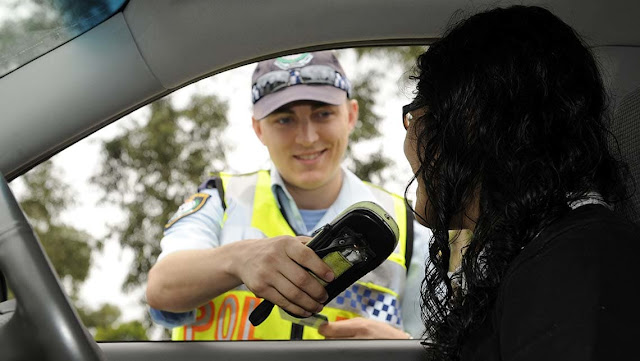Does where you live make a difference to your child’s potential alcohol and other drug use?
 In Australia we know a great deal about the
prevalence of drug use, particularly when compared to other countries in the
world. The statistics that we have are often provided for particular
states and territories, but you rarely see them broken down into greater
detail than that. There are many reasons for this, but most
importantly, the more detail given, the
greater the chance of being able to identify who provided the information. This
is particularly true of data on secondary school students'
drug use. Even though people often request more detailed
information on the drug use in a particular area, it is rarely, if ever,
given as this could lead to a particular community being identified and result in the schools (or school) and their students in that area being labelled as having a 'drug problem'.
In Australia we know a great deal about the
prevalence of drug use, particularly when compared to other countries in the
world. The statistics that we have are often provided for particular
states and territories, but you rarely see them broken down into greater
detail than that. There are many reasons for this, but most
importantly, the more detail given, the
greater the chance of being able to identify who provided the information. This
is particularly true of data on secondary school students'
drug use. Even though people often request more detailed
information on the drug use in a particular area, it is rarely, if ever,
given as this could lead to a particular community being identified and result in the schools (or school) and their students in that area being labelled as having a 'drug problem'.That said, we do have enough information to suggest that there are certain areas where we are far more likely to see particular drug use than others. For parents, this means that the area you live in could impact on the drugs your child may come into contact with and possibly consider using. There are three factors that relate to the risk of a particular drug being used by a young person, all of which, to some extent, may be influenced by the area in which you live:
- availability of the drug
- cost of the drug and/or how much money the young person has at their disposal
- cultural acceptance of drug use by the peer group
Without doubt, there are some drugs that are easier to get in some areas than in others (although this has changed in the past 20 years as distribution networks have become more sophisticated and the web has allowed many substances to become far more accessible). Cannabis is possibly the best example here, with the far north coast of NSW acknowledged as one of the 'centres' of cannabis use in Australia, mainly due to the fact that there is a great deal of the drug grown there and particular cultural groups with positive attitudes towards cannabis have gravitated to the area since the 1970s. More recently, we've learnt more about the devastating impact that ready access to 'ice' has caused in small, regional centres across the country.
It is important to note, however, that even in areas where certain drugs are more available, they are not falling out of the sky! You still need to know someone to get them. As much as the media would love to tell you that there are evil drug dealers hanging out at the end of the schoolyard, this is not the case, and illicit drugs are not always that easy to come by. Drugs are not 'everywhere' and regardless of the perceived ease of availability of drugs in particular areas, it's not usually as simple as just walking down the street and being able to buy a gram of cannabis or a couple of ecstasy pills! Certainly there are a few places in the country where there are (or have been) 'street drug' markets (e.g., Kings Cross in Sydney, Nimbin on the far north coast of NSW) but these are few and far between and certainly not the norm.
Although access is important, in my experience, it is the amount of money teens have at their disposal that is one of the greatest risk factors in this area. I know parents in higher socio-economic areas don't like hearing this, but I see a far wider range of illicit drug use occurring in the wealthier parts of the country because to put it bluntly, these kids have the money!
One thing that many people forget is that drugs continue to be expensive. In fact, Australian drug users continue to pay more for most illicit drugs than those in other parts of the world. It is true that some drugs are now much cheaper than they used to be, particularly ecstasy/MDMA, but most illicit drugs are way out of the price range for most young people to use regularly (or they simply have other priorities when it comes to where to spend the money they do have). It is not until they have some sort of income stream that they can afford to outlay a sizeable proportion of their wages on drugs (one of the reasons why you see illicit drug use rise dramatically once they leave school). We rarely talk about it, but money (or lack of it) is one of the major barriers to young people experimenting with alcohol and other drugs. That is why I'm always surprised when I hear of parents handing out large sums of money to their teenage children, or not monitoring where their part-time job income is going.
But what about those kids who don't have much money? Well, firstly, I can pretty well guarantee that you will not find teens in lower socio-economic areas downing bottles of vodka and whiskey on a regular basis. They simply don't have the money to cover the cost. This is why you so often see crime associated with drug use amongst this group. Now that's not to say that there are not alcohol or other drug problems in these areas – it's just that they're different problems, often combined with a whole range of other social issues. Those with less money are going to be drinking cheaper alcohol products with higher alcohol content to ensure intoxication (e.g., cask wine or 'goon' as it is often called). As far as other drugs are concerned, if they can afford to buy anything they are going to be looking for a substance which gives them the 'bigger bang for their buck'!
The final thing to consider is the cultural acceptance of drug use by the peer group. It may take some time (as well as a little heartbreak and rejection), but during adolescence teens will identify with a particular group of friends that they will socialise with. Their choice of friends is not always something parents are comfortable with but realistically there is very little you can do about it, particularly if you want to maintain a positive relationship with your child. Some peer groups have a greater acceptance of drug use than others, with some frowning on the use of one particular drug, while encouraging the use of another. There are others that do not find drug use of any kind acceptable.
Cannabis use, for example, is closely linked to the surf scene and, although not all young people involved in surf culture will use the drug, it is highly likely that they will come into contact with it at one time or another. The same is true for the dance scene. If you live in or around the centre of any major city, or in a regional university centre, there is every chance your son or daughter may attach themselves to this scene. Whether or not a young person involved in the dance scene decides to use drugs or not, it is important for parents to know that it is highly likely that their child will come into contact with drugs if they regularly attend dance events.
So with those things in mind, what can you do to best protect your teen if you do live in a high-risk area (either with specific cultural or social issues or where there's simply lots of money)? Here are just a couple of suggestions:
- talk about your concerns with your teen - acknowledge that they may find themselves in situations where drugs may be available, simply because of where they live or the group they associate with. Discuss what they could do in these situations and, if possible, use your own personal experience and how you dealt with a similar issue
- keep the lines of communication open and let them know at every opportunity that they can come to you and talk about anything at anytime
- ensure you make it clear to them that if there is greater access, there is always greater policing and the increased chance of getting caught. Talk about random breath testing (RBT) and roadside drug testing and why these law enforcement strategies are more likely to be seen in some places than others. A similar discussion can be had around drug detection dogs and their use in particular areas. What does this mean for your teen?
- you can't choose your child's friends but you can certainly voice your concerns and set rules and boundaries around behaviour, particularly when it comes to potential drug use. If you are concerned about their peer group, try not to be judgemental and criticise their friends, but, at the same time, don't be afraid to let them know how you feel and why you are worried
- most importantly, make it very clear where you stand
about the use of alcohol and other drugs. As much as you may believe your views do not
matter to your child, research shows that parental influence is still a major
factor in the decisions most young people make
The area in which you live will almost certainly make a difference to the drugs your child comes into contact with. At the very least, monitoring where they go and who they're with, as well as how much money they have at their disposal, can make it far more difficult for them to access those drugs that are available. Most importantly, however, never forget that it is the relationship you have with your child that will have the greatest influence on how your child responds if and when they do come into contact with drugs, no matter where you live.



Comments
Post a Comment